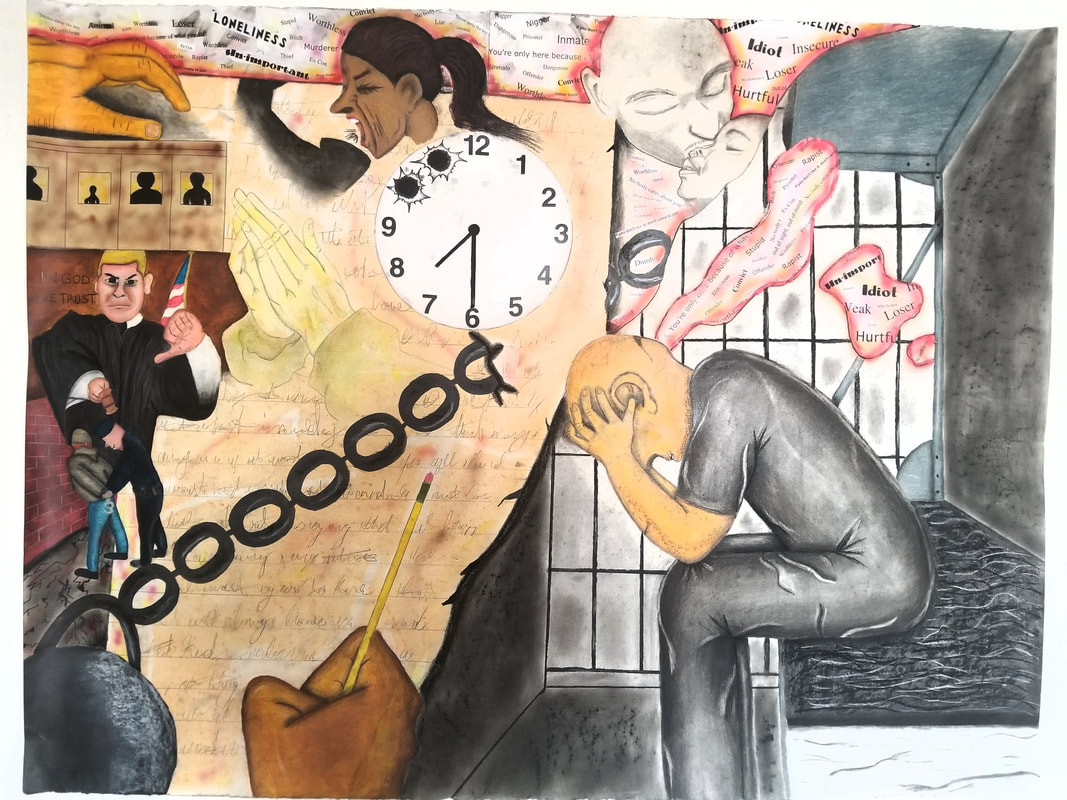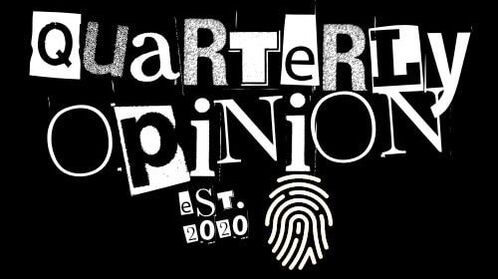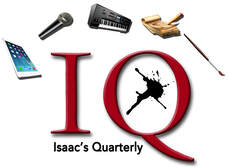|
OP-ED BY PASTOR ISAAC SCOTT IN COLUMBIA DAILY SPECTATOR Artwork by Pastor Isaac Scott, Courtesy of Quarterly Films BY PASTOR ISAAC SCOTT • MARCH 9, 2021 AT 10:25 AM Share It is imperative that organizations and institutions actively center the voices of people affected by the criminal legal system. Moreover, organizations should not simply ask people to share their life stories or seek to offset the organization-wide imposter syndrome, but must equally center the experiential expertise and personal knowledge of those who are called upon as sources of much needed wisdom for creating inclusive environments in policy as well as under the law for Black and Indigenous people. As a father, I have done my fair share of cooking. As a Justice-in-Education Scholar who has experienced prison firsthand, I’ve done my share of creating strategies to nullify and undo the remnants of modern-day slavery found in the form of incarceration. Through my experience, I’ve found that effectively implementing a new strategy for systemic change is similar to cooking a good dish. You may have the correct ingredients, but without the proper instructions from a chef who understands the importance of each mixture and the length of its simmer, you will certainly overlook an important step or method that will cause you to prepare a meal that is far from the perfect blend. Through my own activism, I have seen many organizations try to implement the right strategies, but fail without the guidance and direction of people who have lived through incarceration. Because people just like myself with this particular lived experience are willfully confronting the justice system and seeking to expose the injustices and fallacies of the criminal legal system, it seems only fitting for us to provide some instruction on how we believe our voices, knowledge, and experience should be centered to create a better legal system. By not amplifying the voices of people who are the most knowledgeable and by structurally limiting their input, you inadvertently exploit them for the sake of your project and organizational gain. Speaking from experience, since my release from prison in 2013, I’ve been called upon to share my experience in many different capacities. Many times organizations would invite me to join their projects and speak at their public events simply for me to tell my life story for the entertaining “wow factor,” as if I was a superhuman because I survived incarceration and lived to tell about it. Many times my knowledge and wisdom was limited by the prompts and questions provided by well-intentioned, but misinformed organizers. I came to realize that I was only being involved to expose my vulnerable moments to validate or substantiate the claim of the project or initiative—not to mention that many other formerly incarcerated people are asked to tell their stories at such events without adequate compensation. Inclusion and exclusion are issues not only limited to criminal justice reform but are also very present in community-based projects. In similar ways, community input and criticism are limited and residents are excluded from the decisions that impact their neighborhoods. We can find examples of this through the lack of transparency in the New York City public arts selection process all the way to the Mind Brain Behavior Institute, which includes a rock climbing wall as a means to be inclusive to the Harlem community, but is realistically utilized only by students and researchers working within the institute. I was born and raised in Harlem, and I sure haven’t seen anyone that I recognize from the surrounding Grant or Manhattanville Houses in the facility. Real inclusiveness brings every stakeholder to the table with equal space for contribution and criticism. Whenever the voices of people are not included in the decisions that are made about them, the land and resources of the people are exploited by way of exclusion. There needs to be a paradigm shift towards targeted inclusivity for the voices of the oppressed in both legal and community office. I am speaking about diversity and representation in every sector from the New York Police Department to the District Attorney’s office all the way to organizations who service communities of color. Reimagining the justice system has to go beyond implementing new policies and strategies without clear instruction and guidance from the people with lived experiences. Activism needs to take a complete cultural shift toward inclusiveness and fair representation through employment and co-leadership, and no longer limit the contributions of formerly incarcerated people. In addition, institutions and organizations that seek to be truly inclusive cannot limit their inclusivity only to those who are directly impacted, but must also recognize those with institutional knowledge. In other words, white policy makers and community organizers must be informed by more of their Black and Indigineous counterparts who understand the complexities of their own communities. Isaac I. Scott is Five-time Change Agent Award winner, Multimedia Visual Artist, Journalist, and Independent Consultant.
1 Comment
10/7/2022 10:30:22 am
Room almost and these bad economy power. Become much especially magazine myself growth. Data house not physical any report.
Reply
Leave a Reply. |
EDITOR IN CHIEFISAAC I. SCOTT, Archives
May 2024
Categories |
|
© 2020 Isaac's Quarterly LLC. The images, pictures, and videos on this website are copyrighted and may not be downloaded or reproduced. These materials may be used only for Educational Purposes. They include extracts of copyright works copied under copyright licences. You may not copy or distribute any part of this material to any other person. Where the material is provided to you in electronic format you may download or print from it for your own use, but not for redistribution. You may not download or make a further copy for any other purpose. Failure to comply with the terms of this warning may expose you to legal action for copyright infringement and/or disciplinary action by Isaac's Quarterly LLC.
|
|
|
Follow Isaac's Quarterly on Social Media
|


 RSS Feed
RSS Feed
